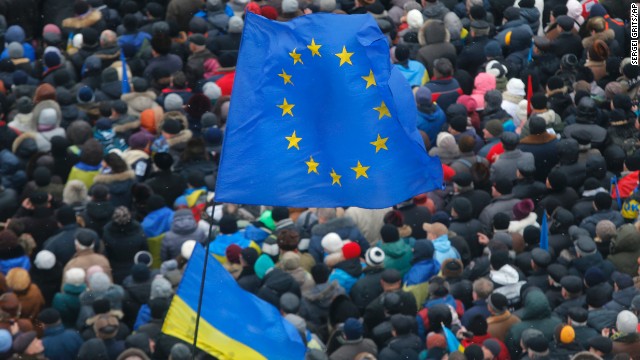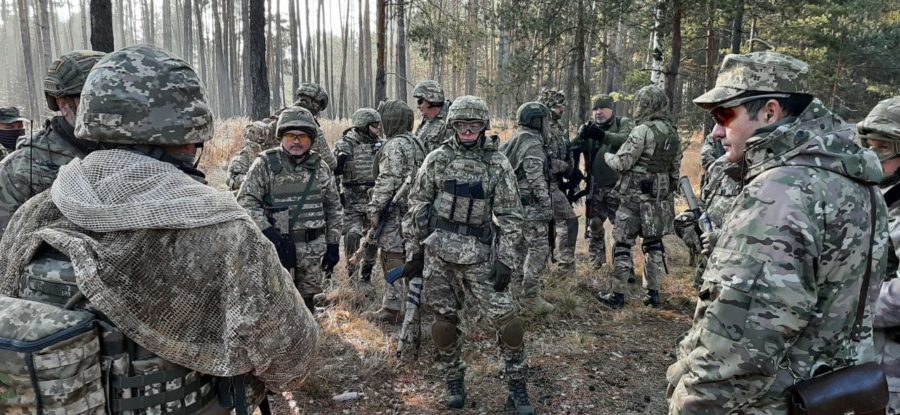Why are Ukrainians winning this war? I promised not to dwell on this topic, but given that I may have a different perspective from most pundits and “experts," I thought mine was (perhaps) worth sharing.
What we are experiencing in Ukraine is a case study in massive and very abrupt social change. In addition to the unfathomable destruction and human suffering, there is something important going on here from the point of view of social science, which (I suggest) is indicative not only of the local phenomenon, but of our understanding of human society more broadly.
So, what’s special about the local phenomenon?
- Firstly, a smaller army is beating a larger one – unexpectedly and unambiguously. The Russian army continues to inflict incomprehensible damage to Ukraine’s cities, but the ground advance of the supposedly more powerful force has been (almost) completely halted.
- Secondly, a nation that was (until a month ago) supposedly deeply divided along ethno-linguistic and regional lines has suddenly united in seemingly monolithic defense against an invader whose identity (language, history) is obviously proximate for a large proportion of that nation’s citizens (for those who disagree: the Ukrainian and Russian cultures and languages are certainly more proximate than say Ukrainian and German). This degree and depth of popular mobilization is not “normal”.
- Thirdly, in addition to the extreme civilian strife caused by Russian rockets and bombs (sadly – comparable to the human losses of other wars), combat fatalities experienced by the invader are unprecedented. Today, the Ukrainian authorities announced that their estimate of the number of Russians killed in action (KIA) has passed the 15 thousand mark. Conservative US estimates are half those claimed by the Ukrainians, but even so, the number of Russians killed in Ukraine during the past 26 days is staggering.
Some comparative context: The combined number of US combat deaths in the post-911 wars in Iraq and Afghanistan (lasting 20 years) amounted to slightly over 7 thousand troops. The USSR lost over 15 thousand men in 10 years of war in Afghanistan. KIA numbers in Ukraine are comparable to the totals of these wars after less than one month!
- Related: Russian soldiers admit heavy losses, looting, shelling civilians in phone calls to wives and mothers
In reality, no one knows the exact number of Russians killed thus far in Ukraine. When a Ukrainian missile hits a Russian armored vehicle or tank, the result is combustion of such intensity that (in the words of one Ukrainian officer): “the human remains fit into a jar.”
Why is this war so deadly
? Clearly the technology of death has “improved” significantly during the past decade: Javelin, NLAW and Stuhna anti-tank weapons are displaying deadly efficiency, as are Bayraktar drones. But maybe other factors are involved as well?
Two additional dynamics (in addition to technology) can be named:
- Firstly, Ukraine’s defenders are highly motivated because they are defending their territory against an obviously malevolent invader. Their wrath and purpose are amplified by grotesque images from Mariupol, Kharkiv, Sumy, Chernihiv, and most recently - Kyiv. But most Ukrainians have never been to many of these places: idealism (the “imagined community” of Ukraine) and identity are at play and are likely explanatory factors of success on the battlefield. The fact that this invader is historically and linguistically “close” serves to intensify Ukrainians’ rage: the death and destruction Russia has caused must be avenged as a matter of principle.
- Secondly, in addition to non-material motivation, there is the structural/organizational aspect of Ukraine’s defense. The Ukrainian Armed Forces are fielding small teams of 15-20 men against large mechanized units of the Russian army. The small units can approach the enemy undetected, causing havoc to the large invading columns of tanks, armored vehicles, multiple launch rocket systems etc. These are regularly destroyed by small autonomous units whose tactics seem to be more akin to hunting than to traditional ground force combat. The same “flat” autonomous structures characterize the logistics networks and the volunteer support groups that enable the effectiveness of Ukraine’s frontline forces.
So, we have identified three factors contributing to Ukraine’s unexpected success against Russia during the early stages of the war. These three dynamics also explain the Ukrainians’ success in inflicting unprecedented losses on the Russian army.
These are:
- Technology (portable highly lethal weaponry);
- Identity (idealistic motivation / morale);
- Organizational structure (small teams vs. large hierarchic units).
The secret of Ukraine's success lies in the combination of these three factors.
However, as a social scientist, one always wants to establish the “prime mover”: which factor is the foundation? Which is most important?
The answer to this question will reflect one's preference for one of three traditions in social theory which I’ve grouped according to their main authors: Marx, Weber, Durkheim (and Bourdieu).
Put in theoretical (generalized) terms: technology affects structure which is then legitimated by ideas.
For Weberians the explanation is always: ideas determine structures that then utilize technology or innovate as needed.
”) of these groups. Together, these define the structural-cultural system (or “field”). The effectiveness of technology depends upon its fit with the field. In the Ukrainians’ case: Javelins, NLAW, Stuhna and other weapons have matched perfectly with their “habitus” and have translated into unprecedented success on the battlefield.
So a “French” sociological explanation would state: structures meld with ideas to produce predominant practices; technological solutions are mounted on this foundation more/less effectively.
To all colleagues from sociology, please excuse the above extreme simplification of the “masters” of our field. I am well aware of Giddens (useless in this case: our “structures are not constantly structuring”) and Parsons (whose purpose was to explain systemic stability, not rapid change), and many others (Sztompka, Archer, Boudon, Latoure…).
My point is to focus non-specialists' thinking:
- If you believe Ukraine has been successful against the Russian invader because the Ukrainians have access to technologically superior weapons (Stinger, Javelin, NLAW, etc.), you may proudly call yourself a Marxist.
- If you believe Ukraine has been successful against the Russian invader because Ukrainians have mobilized around their newfound identity (suddenly overcoming many years of ethno-linguistic regional cleavages about which thousands of pages have been written), consider yourself Weberian.
- If you believe Ukraine has been successful against the Russian invader because its society is naturally organized in small teams, and that Ukrainians’ anti-hierarchical (leaderless) practices have proved radically more effective in employing modern technology than the better equipped and more formally organized Russians, you are (like me), a fan of Bourdieu and French sociology.
In the meantime – Слава Україні! [Glory to Ukraine!]
#ThoughtsfromKyiv
Read More:
- Russia uses mobilized Donbas men as cannon fodder for war in Ukraine – Ukrainian intel
- Why have Z and V become Russia’s symbols of war against Ukraine?
- “I’m sure I’ll die soon. It’s a matter of days” – resident of besieged Mariupol
- As Russia continues bombing civilian structures, Kyiv residents take shelter in city’s vast Metro network (photos)
- Academic publishers continue “business as usual” in Russia
- NATO’s foot-dragging amid Russian atrocities in Ukraine is indefensible
- More Ukrainians support military alliance with UK & Poland than NATO accession, poll shows
- “The Russian military rape women, the dead are just being dumped,” evacuee from Russian-occupied city says





